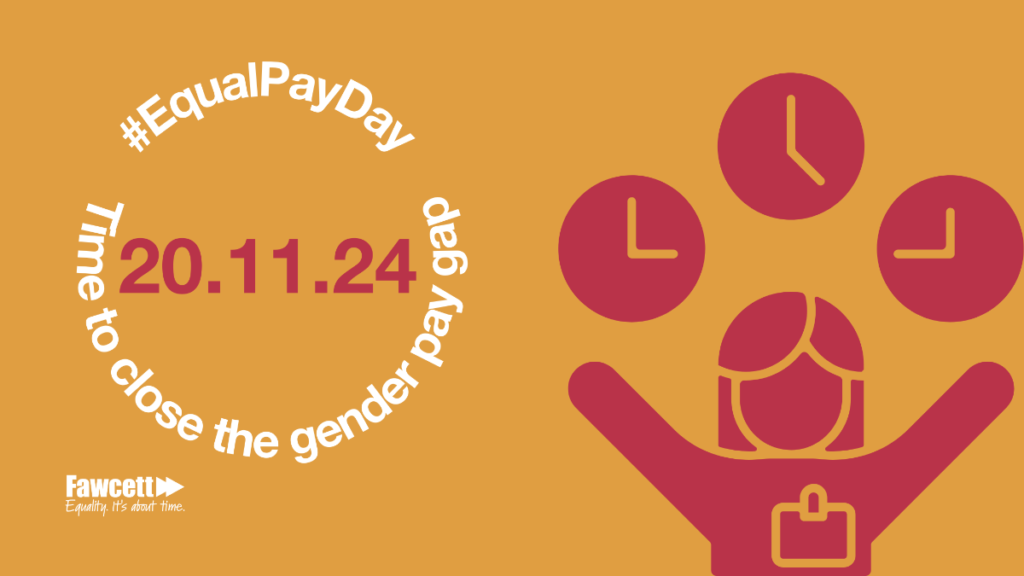The UK’s gender pay gap has widened for the first time since 2013, according to the Fawcett Society, which announced the troubling development on Equal Pay Day 2024 (20th November).
This marks the date when, based on the current gender pay gap, women in the UK effectively stop earning compared to men for the rest of the year. This year’s Equal Pay Day is two days earlier than last year, highlighting a worrying reversal of progress.
The gender pay gap, calculated using the mean hourly pay for full-time workers, has increased to 11.3% in 2024, up from 10.4% in 2023. This reversal highlights the ongoing challenges in achieving pay equity despite years of advocacy and legislative efforts.
Equal Pay Day is a national campaign led by the UK’s Fawcett Society, the UK’s leading membership charity campaigning for gender equality and women’s rights at work, at home and in public life.
WIDENING GENDER PAY GAP CONCERNS
“It’s incredibly alarming to see the gender pay gap widen in 2024. Without urgent action, most women won’t see equal pay in their working lifetimes,” warned Jemima Olchawski, Chief Executive of the Fawcett Society.
Olchawski emphasised that the gender pay gap tends to grow as women age, often due to unpaid care responsibilities for children and older relatives. She urged the UK’s first female Chancellor, delivering her inaugural Budget earlier this month, to address the “motherhood penalty” and invest in systemic solutions to close the gap.
“The draft Employment Rights Bill and current commitments are steps forward, but today’s data shows more urgent action is needed. The government must commit to a comprehensive, cross-departmental strategy to eliminate the gender pay gap by 2030. Women cannot afford to wait.”

EMPLOYMENT RIGHTS BILL CRUCIAL FOR EQUALITY
The Employment Rights Bill, currently under discussion in Parliament, has been described by the Trades Union Congress (TUC) as “vital” for women’s pay and workplace equality. The Bill proposes several measures to close the gender pay gap and improve conditions for women in the workforce.
Key provisions of the Bill include:
- Requiring large employers to implement and disclose action plans to close their gender pay gaps, rather than merely reporting them.
- Introducing day-one flexible working rights, unless employers can provide clear justification for denial.
- Banning exploitative zero-hours contracts, which disproportionately affect women, especially in sectors like social care.
- Extending protections against redundancy and unfair dismissal for pregnant women and new parents.
- Establishing a fair pay agreement in social care to improve pay and conditions. This will help to reduce staff shortages and improve retention.
TUC General Secretary Paul Nowak stressed the urgency of these reforms, noting that at the current rate of progress, it could take another 16 years to close the gender pay gap. “Our economy isn’t working for women,” Nowak said. “Fixing the gender pay gap requires fixing the unequal burden of caregiving and ending insecure, low-paid work. The Employment Rights Bill offers a pathway to meaningful change.”
CALL TO ACTION
The latest data from the Fawcett Society underscores the urgent need for coordinated action to address pay inequity. Experts and advocates alike are calling on the government to prioritise women’s economic rights and enact policies that support gender equality at work and beyond.
As the conversation around Equal Pay Day gains momentum, the message is clear: closing the gender pay gap is not just an issue for women – it’s essential for building a fair and equitable society.






































